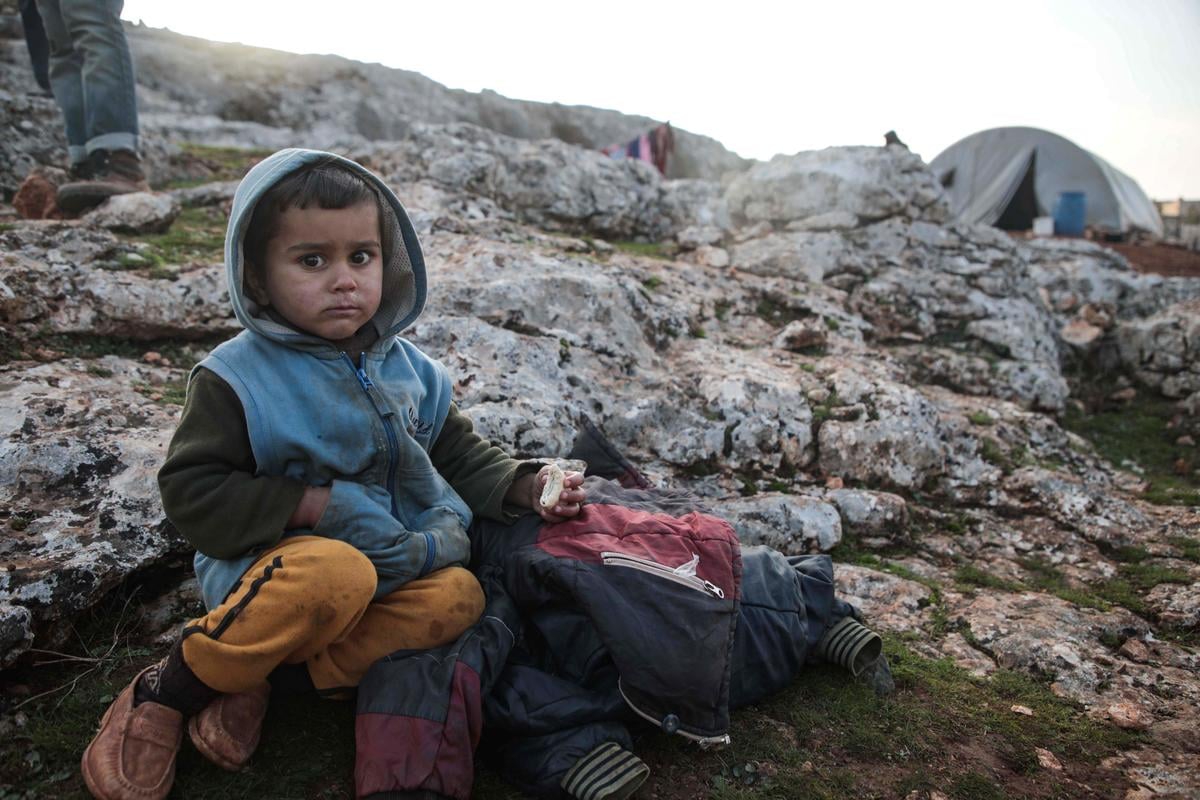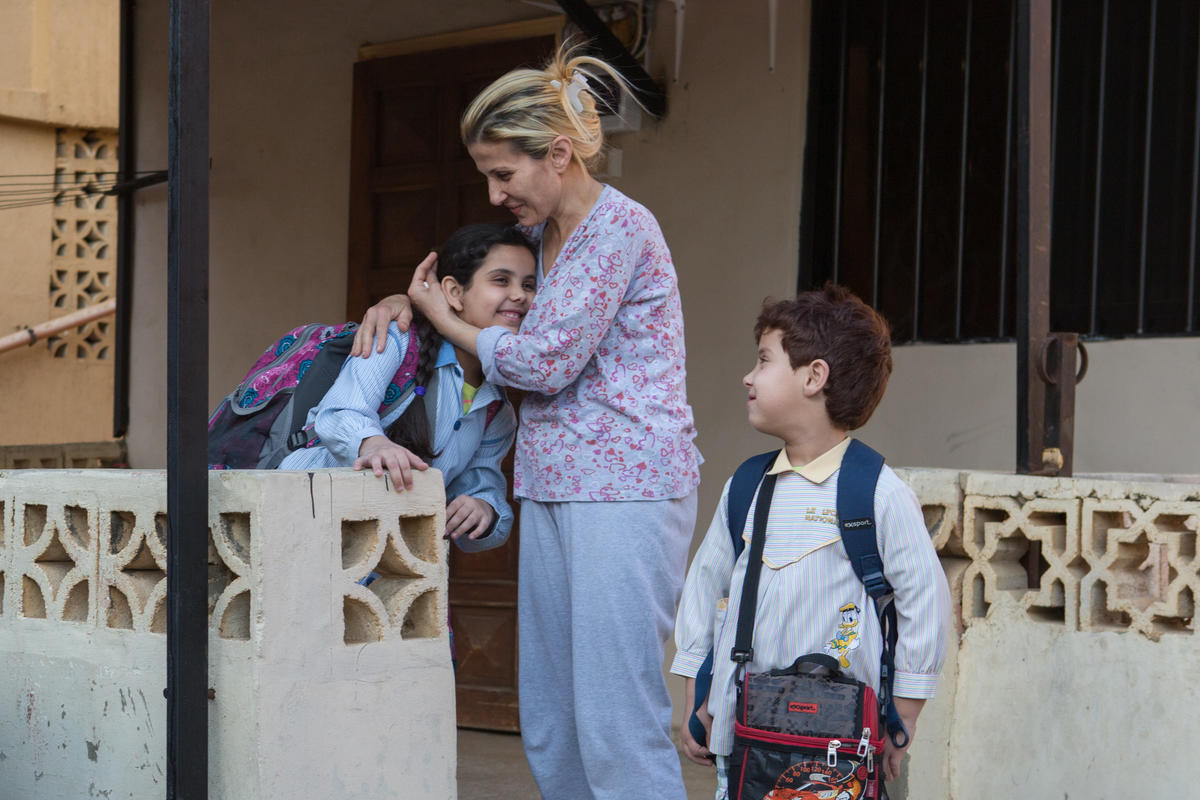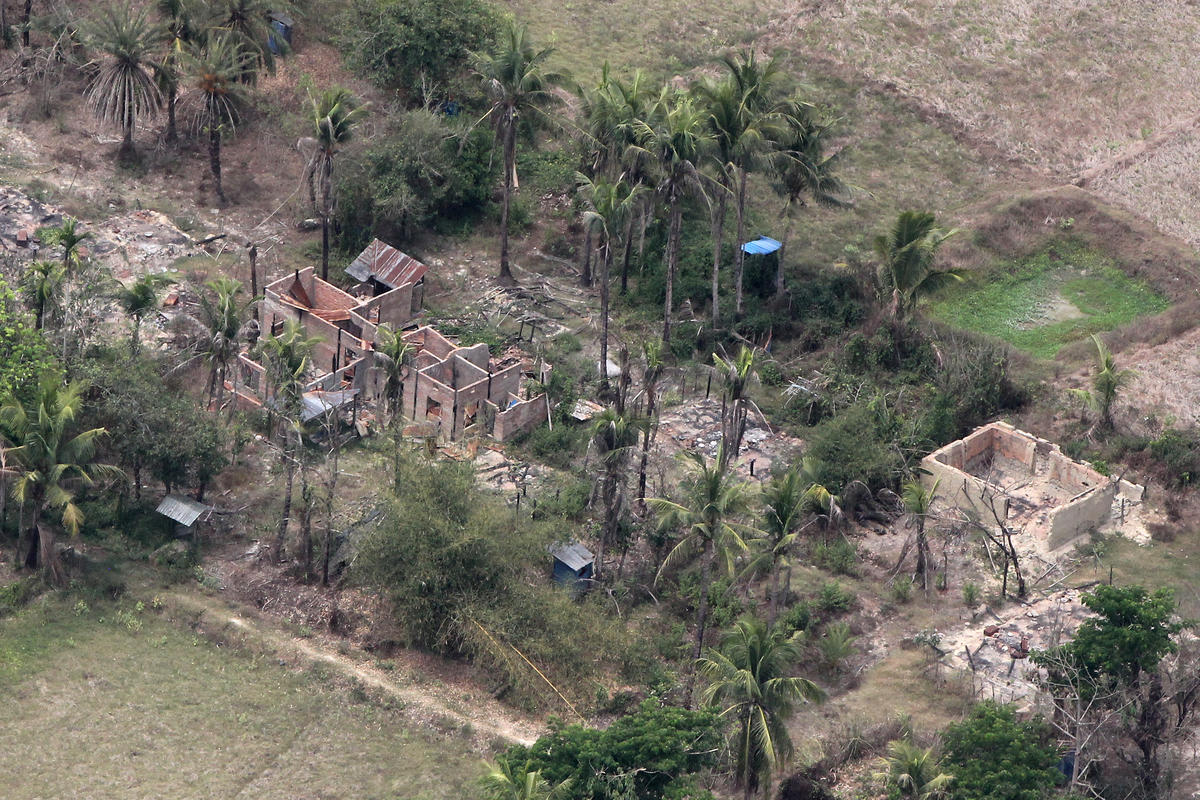Guterres appeals for much more support for Pakistan's flood victims
Guterres appeals for much more support for Pakistan's flood victims

AZAKHEIL, Pakistan, September 16 (UNHCR) - UN High Commissioner for Refugees António Guterres called Thursday on the international community to provide stronger support for the victims of Pakistan's deadly floods, saying more needed to be done to "match the dramatic needs that we are facing."
Guterres, who arrived in Pakistan on Wednesday, made the appeal after visiting flood-affected Afghan refugees and Pakistani villagers in the north-west province of Khyber Pakhtunkwa, which was badly affected by floods that have killed hundreds of people and left millions homeless since mid-July. More than 200,000 homes have been destroyed or badly damaged across the province.
"This is unprecedented. Nobody was prepared for such a level of destruction and for such difficult conditions for the people affected," Guterres told journalists after seeing the devastation for himself. "Everybody is doing their best, but the best everyone is doing cannot match the dramatic needs that we are facing."
The High Commissioner appealed to the international community for "a stronger engagement and stronger support for us all to do better and to do more."
This is unprecedented. Nobody was prepared for such a level of destruction and for such difficult conditions for the people affected.
High Commissioner António Guterres
Earlier in the day, Guterres met Afghan refugee elders in the devastated Azakheil refugee settlement in Khyber Pakhtunkwa's Nowshera district, which once housed more than 23,000 refugees but is now completely destroyed. Azakheil is one of 16 Afghan refugee villages across Pakistan to be destroyed or badly damaged in the floods.
Since flood waters subsided a few weeks ago, Afghans have been returning to their homes to salvage what they can from the mud and rubble, including wooden door frames and windows, bricks and even school books.
Guterres told the elders he had been reassured by senior Pakistani officials that the flood-displaced Afghan refugees in Pakistan would not be forced to repatriate. Sitting with the elders in the community mosque - the lone surviving building in the settlement - Guterres listened to the concerns of people who have lost all in the floods and now fear they will not be able to rebuild at the site.
"Millions of our possessions and valuables are buried under this rubble," said Mussharafad Hussain, spokesman for the refugee elders. "We want to come back to this place. Our children have grown up here and we have a special attachment to it. We have been living here for 30 years," he added.
Guterres said the provincial authorities believed the site was flood prone and it was not appropriate to rebuild. He said a committee would be formed of the federal and local authorities, UNHCR and refugee representatives to discuss the matter.
The High Commissioner also visited the village of Khat Karoona Saidabad, which lies between the Swat and Jinda rivers in Charsadda district. This small community of 56 families was badly hit when the floods swept through on July 30. Not a single house remains untouched and most are totally destroyed.
The sugar cane crop stands yellowing in the nearby fields. The harvest was due in November, but the villagers say whatever can be saved will not fetch much.
Javed is a labourer who lost his three-room house in the floods. He now lives in a UNHCR tent on the site of his home with his father, son and four daughters. Javed lost two buffalo to the raging floods but now tends three cows for a neighbour for a small fee - he has been unable to find work since the floods hit.
"The floods came around one o'clock in the morning. The water was up to our necks and my father and daughter had to be rescued because the current was so strong," he told Guterres. "I am focusing now on trying to fix my house."
Javed and his family were among the first to receive a UNHCR transitional shelter as the agency moves ahead to provide some of the poorest families with a warm room in time for winter. UNCHR has so far distributed shelter material and family kits containing sleeping mats, plastic tarpaulins, mosquito nets, kitchen sets, soap, quilts, blankets and other items to more than 920,000 people.
The High Commissioner's visit to Pakistan comes ahead of a revised United Nations appeal for funds. UNHCR called for US$120 million in August. To date, donor countries have provided about half of that sum.
"My hope is that the international community will understand the needs and fully correspond to the dramatic situation," said Guterres. "All entities working on flood response need much stronger support from the international community."
By Ariane Rummery in Azakheil, Pakistan








